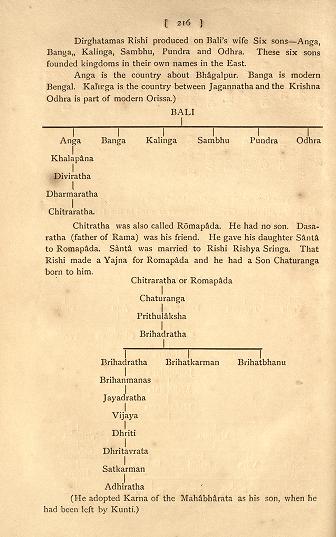Jayadratha

Jayadratha (Sanskrit: जयद्रथ) or Jai Dratha (जयद्रथ) is the king of Sindhu in the epic Mahābhārata. He is married to Dushala, the sister of the Kaurava brothers.
Boon from Shiva
Jayadratha insults Draupadi, the wife of the Pandavas, by attempting to abduct her and forcibly marry her. After Bhima chases and captures him alive, he is saved from death by Yudhisthira, who proclaims him as his slave. Bhima then shaves his hair & makes Jayadratha bald. Desiring to avenge his humiliation, Jayadratha performs a tapasya to please Shiva. He asks for the power to defeat the Pandavas, but Shiva says that is impossible - but he does grant Jayadratha the power to hold all the Pandava brothers at bay for one day in battle - all except Arjuna. Although Lord Shiva loves his devotees equally as he does not ignore the tapasya of rakshasas, asuras or anybody, even those with bad intentions such as Jayadratha, He always finds ways to protect dharma and not allow any evil to triumph over good. Thus, Arjuna ultimately defeated Jayadratha. This episode indicates that God protects His true devotees.
In the War
The Sindhu king sides with Duryodhana in the Kurukshetra War. Jayadratha uses his boon when he stops the Pandava brothers from entering the near-impenetrable Chakra Vyuha, that Arjuna's son Abhimanyu enters, depending solely upon the support of the rest of the army to get out. Trapped inside, Abhimanyu is murdered by unfair means.
The Pandavas are startled that Jayadratha was able to hold the most powerful warriors in the world at bay. Arjuna blames Jayadratha for Abhimanyu's death, and vows to kill him the next day.
Arjuna's revenge
Having pledged to enter the fire if he failed to kill the Sindhu king Jayadratha, whom he held principally responsible, by the end of the day, Arjuna in the process kills an entire akshauhini, or more than hundreds of thousands of soldiers. In the climactic moment, the sun is close to setting and thousands of warriors still separate Arjuna and Jayadratha. Seeing his friend's plight, Lord Krishna, his charioteer raises his Sudarshana Chakra to cover the Sun, faking a sunset. The Kaurava warriors rejoice over Arjuna's defeat and imminent death, and Jayadratha is exposed in a crucial moment, where upon the Lord's urging, Arjuna loosens a powerful arrow that decapitates Jayadratha. This note of the act of protection of Krishna of his righteous friend and disciple will be incomplete without adding that Jayadratha's father, the old and sinful king Vridhakshtra had blessed his son that anyone who caused his head to fall to the ground would cause his own head to burst. Jayadratha's head is carried by the arrow to his own father's hands, who was meditating near the battlefield; who in his shock drops the head and himself dies of his own blessing.
Alternate: (with a reference from Mrityinjaya) When Arjuna pledges to kill Jayadratha before end of next day, Krishna thinks of how it can be made possible. He calls an astrologer the same night and confirms of a 'total solar eclipse' next day. Next day on the field, Kauravas purposefully keep Jayadratha behind huge number of soldiers, so that Arjuna could never reach him. Arjuna kills thousands of soldiers but could not reach him. Due to eclipse sky turns dark and everyone thinks sun has set. As per the pledge Arjun prepares himself to enter fire. Kauravas call Jaydratha to show him death of Arjuna. When he arrives Krishna surprises everyone by showing sun who recovers out of eclipse. Seeing sun still in sky, Arjuna beheads Jayadratha with a an arrow.
Aftermath
After the war, Arjuna fights with the Sindhu army when it refuses to honor Yudhisthira as the World emperor. When Dushala, his cousin, comes out and begs for her son, the young king's life, Arjuna stops fighting and makes amends
In Jat history
Qanungo[1] writes that the author of Mujmal-ut-Twarikh records an interesting legend - that a joint embassy was sent by the Jats and Meds of Sindh to the Court of King Duryodhana, asking for a ruler to govern them. "The Jats and Meds . . . dwelt in Sindh and on the banks of the river which is Bahar (mouth of the Indus?) .... The Meds held the ascendancy over the Jats, and put them to great distress, which compelled them to take refuge on the other side of the river Pahan (Panjnad river?), but being accustomed to the use of boats, they used to cross the river and make attacks on the Meds, who were owners of sheep. It so came to pass that the Jats enfeebled the Meds, killed many of them and plundered their country. The Meds then became subject to the Jats.
"One of the Jat chiefs (seeing the state to which the Meds were reduced) made the people of his tribe understand that there was a time when the Meds attacked the Jats and harassed them, and that the Jats in their turn had done the same with the Meds. He impressed upon their minds the utility of both tribes living in peace, and then advised the Jats and Meds to send a few chiefs to wait on king Dajushan (Duryodhana), son of Dahrat (Dhritarashtra), and beg of him to appoint a in to whose authority both tribes might submit ... After some discussions they agreed to act upon it, and the Emperor Dajushan nominated his sister Dassal [Dushala], wife of King Jandrat (Jayadratha) a powerful prince to rule over the Jats and Meds. Dassal went and took care of the countries and cities . . . There was no Brahman or wise man in the country. She therefore wrote a long letter to her brother for assistance, who collected 30,000 Brahmans from an Hindustan, and sent them with their goods and dependents to his sister" (Elliot, i, 104).
References
Back to The Ancient Jats

